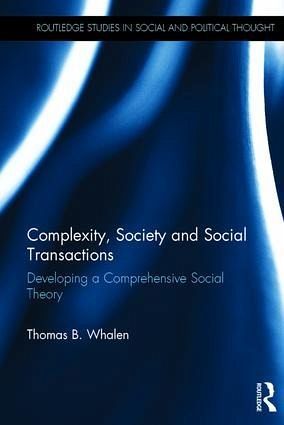
Complexity, Society and Social Transactions
Developing a Comprehensive Social Theory

PAYBACK Punkte
84 °P sammeln!
Drawing on a range of theoretical approaches from across the social sciences, this book contends that society, culture, and economy are emergent from social and environmental transaction and negotiation. With each transaction comes renegotiation, however small, and thus the continuous reconstruction of society in the specious present, with practices, beliefs and traditions becoming part of the accepted canon of a group through continual renegotiation, and deviations from the canon being managed through narrative.














